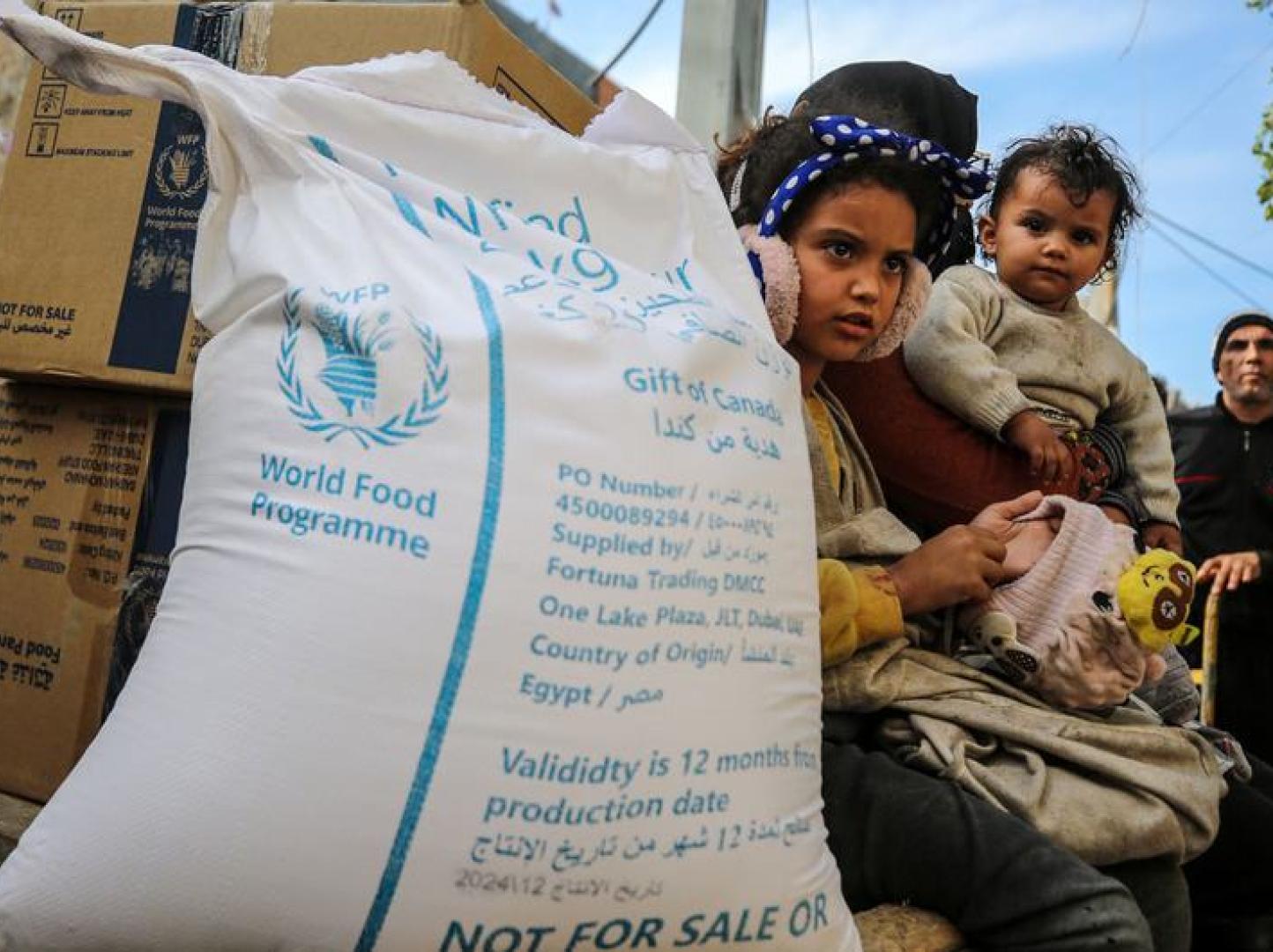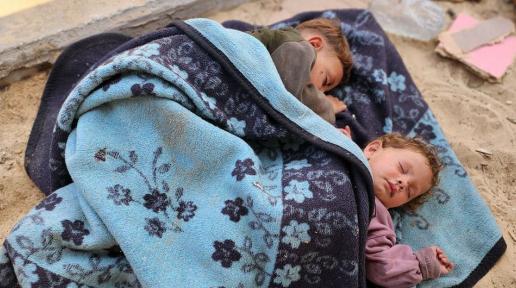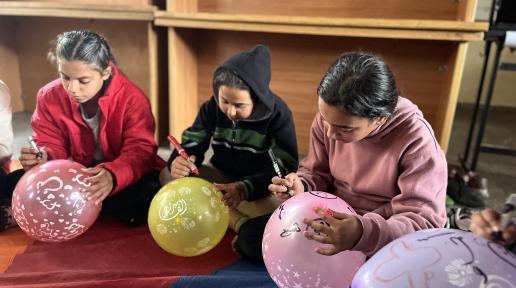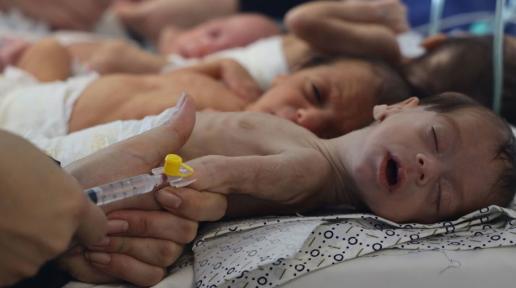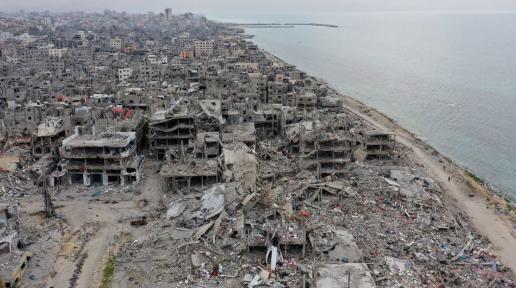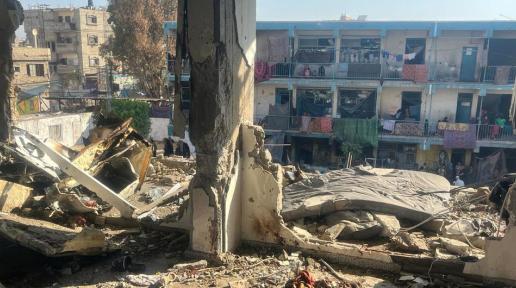Story
05 June 2025
Gaza: UN relief chief welcomes growing support for aid teams to resume vital work
Amid reports of yet another deadly attack on a school in Gaza on Wednesday, the UN’s top aid official Tom Fletcher welcomed growing international calls for lifesaving aid work by established agencies to resume in the war-torn enclave.“We value the support of more and more Member States who are joining our call: Let us work,” Mr. Fletcher said, his comments coinciding with the announcement that the US and Israeli-backed aid hub in southern Gaza operating independently of the UN had been suspended on Wednesday.“The world is watching, day after day, horrifying scenes of Palestinians being shot, wounded or killed in Gaza while simply trying to eat,” Mr. Fletcher said.New Security Council resolutionThe development comes ahead of a Security Council meeting on Gaza on Wednesday seeking agreement on a draft resolution calling for an immediate ceasefire and the release of all remaining hostages taken during Hamas-led terror attacks in Israel on 7 October 2023.The resolution push is the result of lobbying by the body’s 10 non-permanent Members. It remains to be seen if it will garner the support of the US and the four other countries that hold just five permanent seats on the 15-Member body: China, France, the UK and Russia. Any one of them could veto it.Meanwhile in Gaza, local authorities on Wednesday claimed that at least 12 people including children had been killed in an Israeli strike on a school-turned-shelter in the southern city of Khan Younis.In his appeal, Mr. Fletcher noted that medical teams had confirmed treating “hundreds of trauma cases” in recent days after footage showed chaotic scenes of Palestinians rushing to take food from the US and Israeli-run aid hubs in southern Gaza.“Yesterday alone, dozens were declared dead at hospitals after Israeli forces said they had opened fire,” Mr. Fletcher continued.He insisted: “Open the crossings – all of them. Let in lifesaving aid at scale, from all directions. Lift the restrictions on what and how much aid we can bring in. Ensure our convoys aren’t held up by delays and denials.”Health system crumblingMr. Fletcher also warned that the crisis in Gaza is the result of “a series of deliberate choices” that have left two million people deprived of the essentials they need to survive.He urged Israel to open all crossings into the war-torn enclave, lift restrictions on aid, and allow safe and sustained access for humanitarian convoys.According to the UN relief wing, OCHA, more than 100,000 people have been newly displaced in the Gaza Strip over the past three weeks, as access to health services continues to deteriorate.The Indonesian Hospital in the north was evacuated earlier this week, leaving no functional hospitals in the northern governorate.In Gaza City, UN’s Deputy Humanitarian Coordinator Suzanna Tkalec visited Al Ahli Hospital, where staff said preventable deaths are occurring due to shortages of antibiotics and other critical supplies. Challenges accessing aidMeanwhile, the UN and its partners continue to send supplies to Kerem Shalom crossing, where the Israeli authorities scan them before they can enter Gaza, a UN spokesperson said.“For today, we submitted over 130 pre-cleared truckloads for a second and final Israeli clearance, but only 50 of them – which were carrying flour – were approved to enter the Israeli side of the Kerem Shalom crossing,” Stéphane Dujarric told journalists at a regular briefing at the UN Headquarters, in New York.UN teams on the ground are also working hard to collect supplies from Kerem Shalom and bring them closer to the people who need them inside Gaza, he added, noting however that these attempts are facing major hurdles.“Just yesterday, one attempt was denied access altogether and another one did manage to retrieve just over a dozen truckloads carrying flour. Overall, since the crossing reopened, we’ve been able to collect fewer than 400 truckloads, even though every day we have tried to coordinate access and secure safe routes through the Israeli-militarized zone in the south.” , filtered_html
